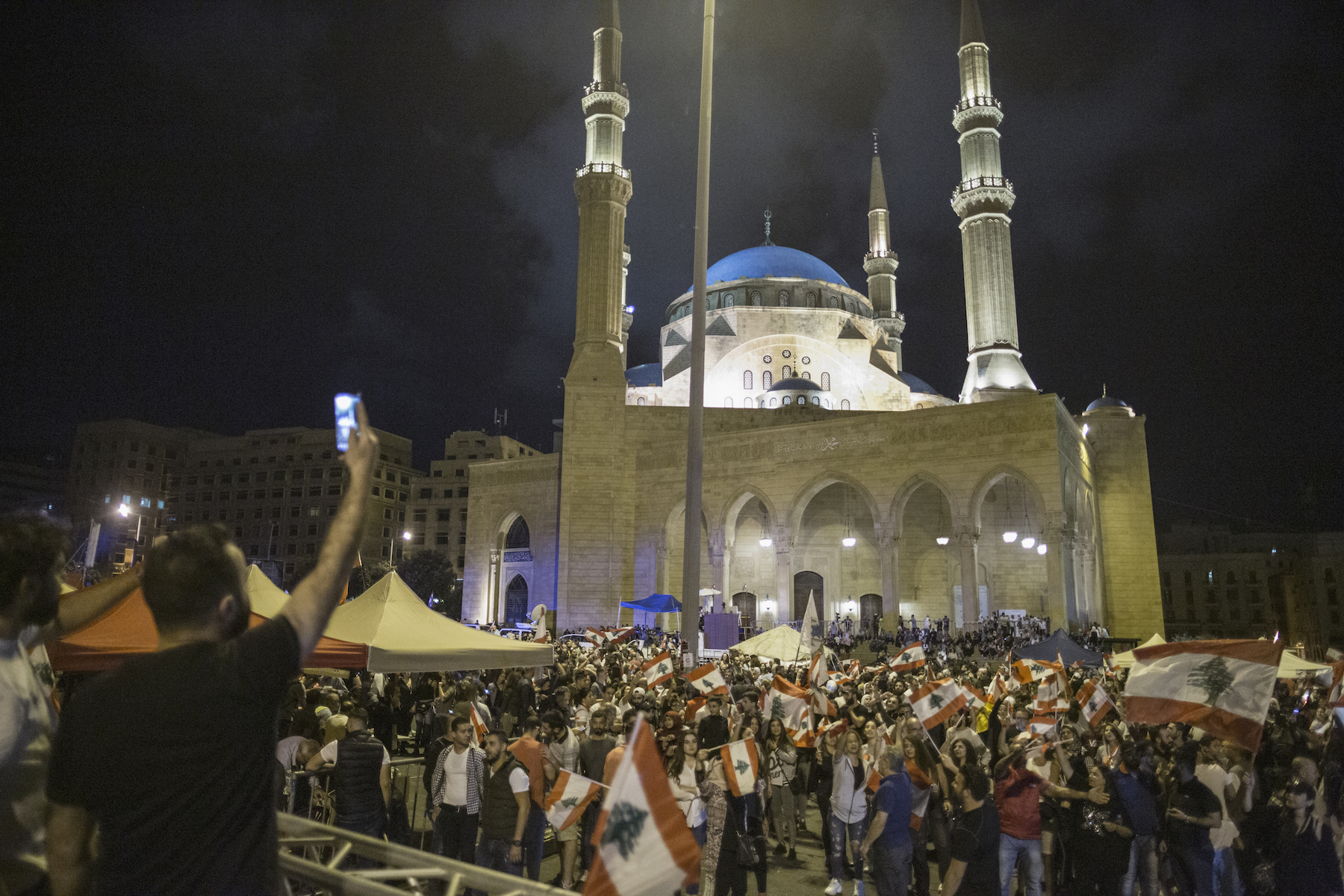How a Protest Movement Took Down Lebanon’s Prime Minister

Credit to Author: Michael Downey| Date: Tue, 29 Oct 2019 22:54:06 +0000
Lebanon’s prime minister presented his resignation on Tuesday, bowing to demands by protestors who have paralyzed the country for 13 straight days.
“I've been trying to find a way out and to listen to the people's voices, and protect the country from security and economic perils,” Prime Minister Saad al-Hariri said in a televised speech. “I've reached a dead end.”
It was a stunning move from the foremost Sunni Muslim representative in the government. He presented his resignation to President Michel Aoun, leaving it to Christians and Shiite Muslims to find a solution out of the crisis.
Immediately after news of Hariri’s impending resignation began to circulate, supporters of the Shiite paramilitary group Hezbollah ransacked tents set up by protesters in downtown Beirut and beat protestors with sticks. They were dispersed by anti-riot police and the army. The clashes contributed to a sense of unease in Beirut about what comes next.
Hezbollah’s leader Hassan Nasrallah sees the fragile political power balance between Shiite, Sunnis and Christians in the government as essential to preserve. Otherwise, the country would descend into chaos, he warned in a televised speech days before Hariri’s resignation.
The demonstrations started over something seemingly trivial: a government plan to raise funds by taxing calls on WhatsApp. But for a population exasperated with government corruption corrupt government, and dealing with daily power cuts and seasonal water shortages, it was the last straw.
The protests spread through the country in days. At times there were as many as 1 million people on the streets, in a country of 4 million people. Protesters say they want the government to fix its broken economy: unemployment is at an all-time high and the currency has lost value in recent years. Past demonstrations against corruption has failed to bring about greater transparency. An influx of more than a million refugees since the Syrian conflict began has added to the strain.
Meanwhile, the country’s elite has commandeered that vast majority of Lebanon’s wealth.
“It’s basically 30 years of having the same people in the government taxing us, lying to us, to our faces, taxing us more, and still no result whatsoever," said Lary Bou Safi, an LGBTQ activist and comedian who has attended the protests in Beirut since they began.
"We want the money that was stolen to be brought back. And we want accountability," Bou Safi said.
On Tuesday night, protesters slowly trickled back onto Beirut’s Martyrs square to celebrate Hariri’s departure. Some were calling for more resignations: “The state is run by thugs; all of them, means all of them.”
Edited by Adam Deniston and Brittany Ross.
Cover: Anti-government protesters wave Lebanese flags in Martyrs' Square on October 29, 2019 in Beirut, Lebanon. (Photo By Sam Tarling/Getty Images)
This article originally appeared on VICE US.